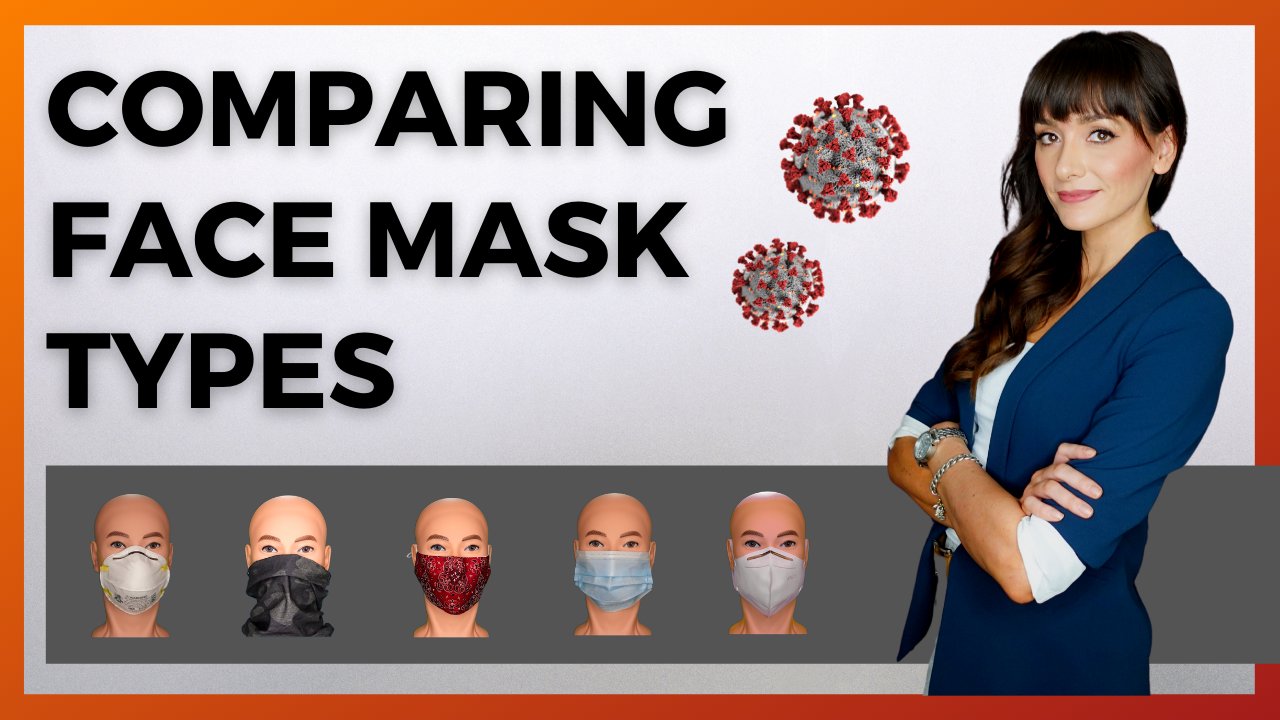Is COVID-19 OSHA recordable?
Since the pandemic began, OSHA has issued a staggering $3,900,00 in penalties to businesses who failed to protect employees.
It turns out, those penalties were for 5 major issues:
- Failure to report a workplace Covid-19 illness or fatality
- Failure to record the illness or fatality on OSHA recordkeeping forms
- Failure to comply with OSHA’s general duty clause, stating that employers are responsible for providing a safe and healthy workplace
- Failure to provide a written respiratory protection program when having employees wear respirators
- Failure to provide respirator fit tests, evaluations, and training (And just in case you didn’t know, N95’s are respirators, so make sure to check out our video on that.)
Updated COVID-19 OSHA Recording and Reporting Information
For those of you who are subscribers, you may have seen the video I put out on COVID-19 OSHA recordability in May of last year.
Back then, we were only two months into the pandemic, most of America was still basking in the glow of working while wearing stretchy pants, and OSHA was only enforcing COVID-19 recordability requirements for three industries: healthcare, emergency response, and correctional institutions.
A lot has changed since then. This video, is to keep you updated on those changes.
We are workplace safety and health consultants and we are sharing with you today is information from OSHA that we use to help our clients make their own OSHA recordability determinations. So, if you find this helpful, don’t forget to comment or subscribe to the Ally Safety youtube channel for more great videos.
OSHA's Updated Guidance for Recording COVID-19 as a Work-Related Illness
On May 19th, of 2020 OSHA issued revised enforcement guidance to help their compliance officers and businesses understand the recording and reporting requirements for cases of COVID-19.
The memo stated that under OSHA’s recordkeeping requirements, COVID-19 is a recordable illness, and employers must record the case if the case meets these three criteria:
- If the case is a confirmed as a COVID-19; and
- If the case is work-related as defined by OSHA; and
- If the case involves one or more of the general recording criteria from OSHA such as medical treatment beyond first aid, days away from work, or death.
Now, if you’re anything like me, you’re going to immediately start thinking about how incredibly tedious and frustrating determining work-relatedness could get, but we’ve got some OSHA clarifications to make it easier on you.

Question 1: Is it a confirmed case of COVID-19?
The first question is an easy one, for a case to be a confirmed case of covid-19, at least one respiratory specimen has to have tested positive for the SARS CoV-2 virus that causes COVID-19.

Question 2: Is the case of COVID-19 work-related?
Next, determining work-relatedness is the really tricky part, so be prepared to spend some time on this one.
OSHA has acknowledged that because of how widespread coronavirus is, employers may have a difficult time determining if the case is work-related.
They noted that employers, especially small employers, should not be expected to undertake extensive medical inquiries, given employee privacy concerns and most employers' lack of expertise in this area.
What is expected, is that if you learn of an employee's COVID-19 illness, take the following steps:
1. Ask the employee how he believes he contracted the COVID-19 illness;
2. While respecting employee privacy, discuss with the employee his work and out-of-work activities that may have led to the COVID-19 illness; and
3. Review the employee's work environment for potential SARS-CoV-2 exposure and be include any other instances of workers in that environment contracting COVID-19 illness as part of that review.
Work to get the best information possible while you’re making the work-relatedness determination and update as necessary if more information emerges.
Then, gather evidence to understand if the case of COVID-19 was contracted at work. According to OSHA, that evidence may include:
- Outbreaks at work like several cases developing among workers who work closely together when there is no alternative explanation
- A case of COVID-19 that is contracted shortly after lengthy, close exposure to a particular customer or coworker who has a confirmed case of COVID-19 and when there is no alternative explanation
- A case of COVID-19 in an individual whose job duties include having frequent, close exposure to the general public in a locality with ongoing community transmission and when there is no alternative explanation.
In addition, here are some cases where OSHA states work relatedness is unlikely:
- A case of COVID-19 is likely not work-related if the individual is the only worker to contract COVID-19 in her vicinity and job duties not include having frequent contact with the general public, regardless of the rate of community spread.
- A case of COVID-19 is likely not work-related if the individual, outside the workplace, closely and frequently associates with someone who has COVID-19, is not a coworker, and exposes the employee during the period in which the individual is likely to be infectious.
Now, if after you’ve put in a good faith effort and can’t determine if the case was work-related, OSHA states the employer does not need to record that COVID-19 illness.

Question 3: Did the case result in lost work days, medical treatment, or death?
There are two considerations we need to make here.
1. The first is as any safety professional knows, the basics of OSHA recordability are in the question – did the illness result in lost work days, medical treatment beyond first aid, or death? With COVID-19, even asymptomatic individuals need to isolate, so yes, it would result in days away from work.
The second consideration is also from OSHA’s recording standard and says employers must also consider a case to meet the general recording criteria if it "involves a significant injury or illness diagnosed by a physician or other licensed health care professional", even if it does not result in death, days away from work, restricted work or job transfer, medical treatment beyond first aid, or loss of consciousness.
So that makes it pretty clear that COVID-19 is going to fit that criteria.
One item to note, OSHA has not produced guidance on how to account for days away from work, other than by referring to general recording criteria in 1904(b)(3).
For the cases that are work-related, COVID-19 is a respiratory illness and should be coded as such on the OSHA Form 300. Also, because this is an illness, if an employee voluntarily requests that their name not be entered on the log, the employer must comply as specified under 29 CFR § 1904.29.

Reporting COVID-19 Hospitalizations and Fatalities to OSHA
Now, what about reporting those serious cases like hospitalizations or fatalities to OSHA? This was addressed in recent FAQ's on reporting.
If you have objective evidence that the COVID-19 case was due to a workplace exposure, and that exposure led to an in-patient hospitalization, you need to report that issue to OSHA if the hospitalization occurs within 24 hours of the exposure at work.
The time limit for reporting the hospitalization is within 24 hours.
 In the terrible event that a workplace exposure to covid-19 results in a fatality, if the fatality that occurs within 30 days of the workplace exposure, it needs to be reported to OSHA within 8 hours of the company learning about the fatality.
In the terrible event that a workplace exposure to covid-19 results in a fatality, if the fatality that occurs within 30 days of the workplace exposure, it needs to be reported to OSHA within 8 hours of the company learning about the fatality.
To report:
- Call the nearest OSHA office;
- Call the OSHA 24-hour hotline at 1-800-321-OSHA (6742); or
- By electronic submission, report online.
Be prepared to supply the following information:
- Business name
- Name of employee(s) affected
- Location and time of incident
- Description of incident
- Contact person and phone number
We hope this article and video helped you make sense of COVID-19’s OSHA recording requirements.



Leave a comment
All comments are moderated before being published.
This site is protected by hCaptcha and the hCaptcha Privacy Policy and Terms of Service apply.